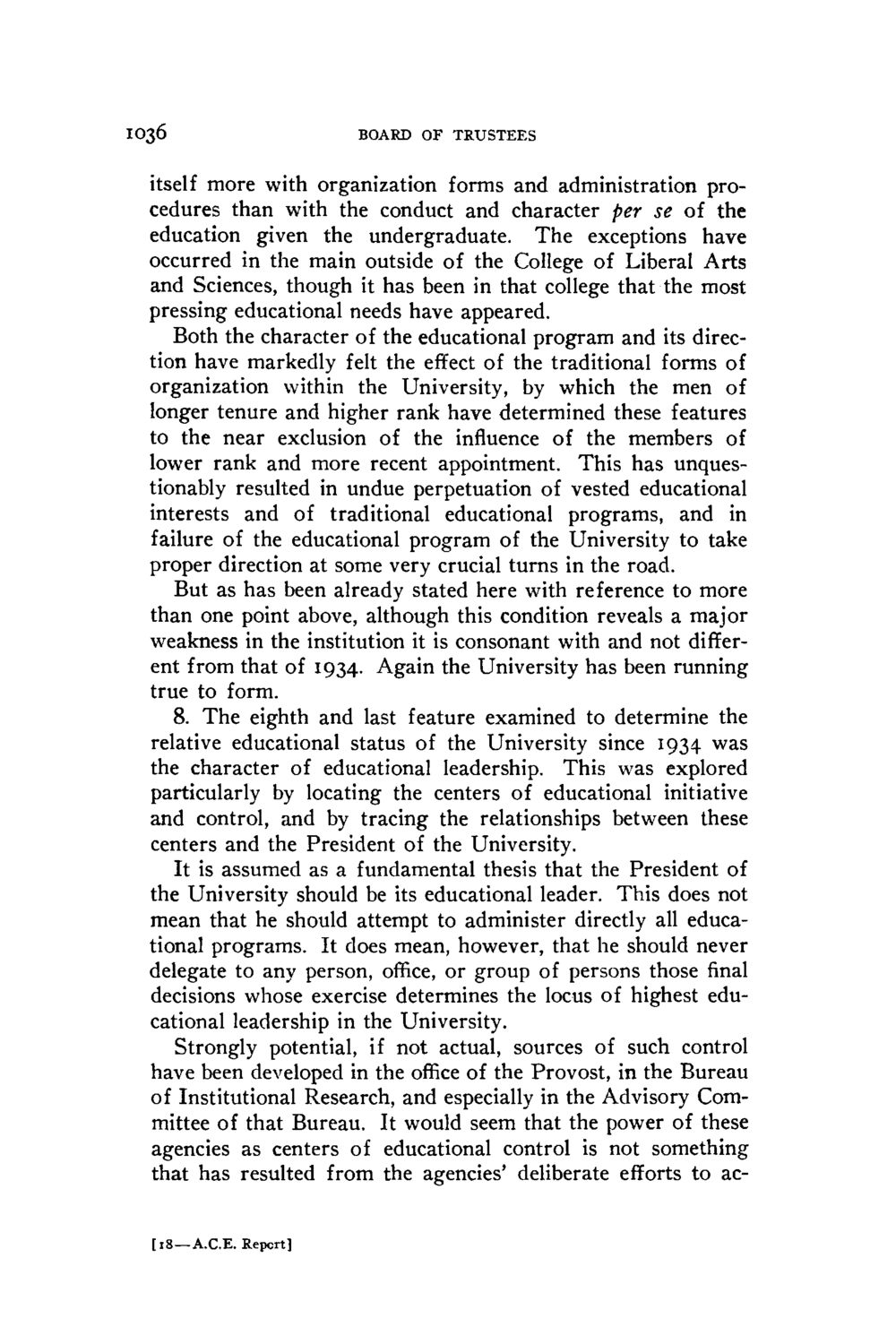| |
| |
Caption: Board of Trustees Minutes - 1944
This is a reduced-resolution page image for fast online browsing.

EXTRACTED TEXT FROM PAGE:
1036 BOARD OF TRUSTEES itself more with organization forms and administration procedures than with the conduct and character per se of the education given the undergraduate. The exceptions have occurred in the main outside of the College of Liberal Arts and Sciences, though it has been in that college that the most pressing educational needs have appeared. Both the character of the educational program and its direction have markedly felt the effect of the traditional forms of organization within the University, by which the men of longer tenure and higher rank have determined these features to the near exclusion of the influence of the members of lower rank and more recent appointment. This has unquestionably resulted in undue perpetuation of vested educational interests and of traditional educational programs, and in failure of the educational program of the University to take proper direction at some very crucial turns in the road. But as has been already stated here with reference to more than one point above, although this condition reveals a major weakness in the institution it is consonant with and not different from that of 1934. Again the University has been running true to form. 8. The eighth and last feature examined to determine the relative educational status of the University since 1934 was the character of educational leadership. This was explored particularly by locating the centers of educational initiative and control, and by tracing the relationships between these centers and the President of the University. It is assumed as a fundamental thesis that the President of the University should be its educational leader. This does not mean that he should attempt to administer directly all educational programs. It does mean, however, that he should never delegate to any person, office, or group of persons those final decisions whose exercise determines the locus of highest educational leadership in the University. Strongly potential, if not actual, sources of such control have been developed in the office of the Provost, in the Bureau of Institutional Research, and especially in the Advisory Committee of that Bureau. It would seem that the power of these agencies as centers of educational control is not something that has resulted from the agencies' deliberate efforts to ac[18—A.C.E. Report]
| |